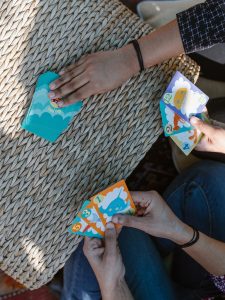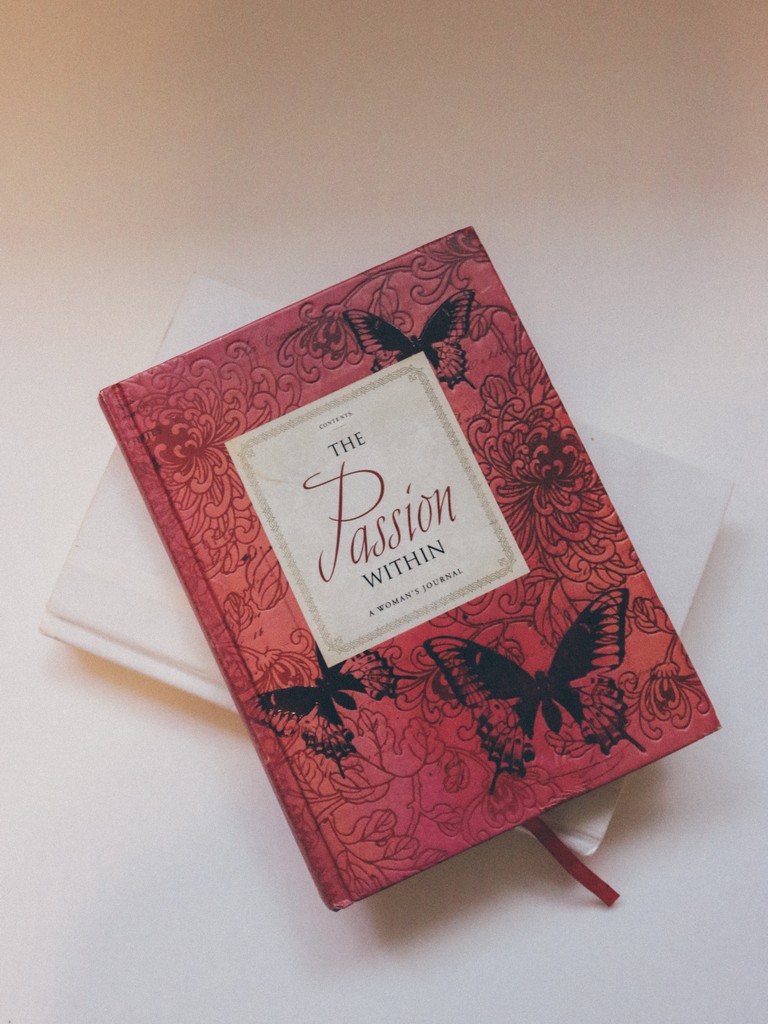Montessori vs Traditional Education: What’s the difference? Montessori and traditional education are two approaches that differ in many ways. While traditional education has been around for centuries, Montessori is a relatively new approach that emphasizes hands-on learning and self-directed education. In this article, we’ll explore the differences between these two approaches to education and help you decide which one is right for you or your child.
Education is one of the most important aspects of a child’s life. It plays a crucial role in molding their personality, shaping their future, and preparing them for the challenges that lie ahead. Therefore, choosing the right approach to education is critical to a child’s success.
What is Montessori Education?

Montessori education is an approach that emphasizes hands-on learning and self-directed education. It was developed by Maria Montessori, an Italian physician, and educator, in the early 1900s. The Montessori approach is child-centered and focuses on the child’s individual needs and interests. In a Montessori classroom, children are free to choose their activities and work at their own pace.
What is Traditional Education?
Traditional education is a teacher-centered approach that emphasizes the transmission of knowledge from the teacher to the student. It is based on the belief that the teacher knows best and that the student’s role is to listen and learn. In a traditional classroom, students are expected to follow a set curriculum and complete assignments and tests regularly.
Teaching Methods:
In Montessori education, teachers act as guides and facilitate learning rather than direct instruction. Students are encouraged to explore and discover knowledge on their own through hands-on activities and experimentation. In traditional education, teachers use lectures, textbooks, and other materials to convey information.
Classroom Environment:
Montessori classrooms are designed to be child-friendly and promote independence. They are often filled with materials that students can use to explore and learn. Traditional classrooms are typically more structured, with desks arranged in rows and a chalkboard or whiteboard at the front of the room.
Curriculum:
Montessori education is based on a child’s individual needs and interests. The curriculum is flexible and adaptable, allowing students to explore subjects in-depth and at their own pace. Traditional education is based on a set curriculum that covers a wide range of subjects and is often standardized.
Teacher’s Role:
In Montessori education, teachers act as guides and facilitators, helping students to explore and discover knowledge on their own. In traditional education, teachers are the primary source of information and are responsible for conveying knowledge to students.
Student’s Role:
In Montessori education, students are encouraged to take an active role in their learning. They are free to choose their activities and work at their own pace. In traditional education, students are expected to follow a set curriculum and complete assignments and tests regularly.
Assessment and Grading:
Montessori education emphasizes self-assessment and self-correction. Students are encouraged to reflect on their progress and make adjustments as needed. Traditional education often relies on standardized tests and grades to assess student performance.
Cost:
Montessori education can be more expensive than traditional education due to the cost of materials and the lower student-to-teacher ratio. Traditional education is typically less expensive, but the quality of education can vary.
Which Approach is Right for You or Your Child?
Choosing between Montessori and traditional education depends on your child’s personality, learning style, and interests. If your child is independent, curious, and enjoys hands-on learning, Montessori education may be a good fit. If your child prefers structure, routine, and traditional classroom instruction, traditional education may be a better choice.
FAQs:
Q1. Is Montessori education accredited? A1. Yes, Montessori schools can be accredited by organizations such as the American Montessori Society.
Q2. Can traditional schools incorporate Montessori methods? A2. Yes, traditional schools can incorporate Montessori methods into their curriculum, but it may require additional training for teachers.
Q3. Are Montessori schools only for preschoolers? A3. No, Montessori schools can be for students of all ages, including high school.
Q4. Can Montessori students transition to traditional schools? A4. Yes, Montessori students can transition to traditional schools, but it may require an adjustment period.
Q5. Are Montessori schools more effective than traditional schools? A5. The effectiveness of Montessori education versus traditional education is still a subject of debate among educators and researchers.
Choosing between Montessori and traditional education is a personal decision that depends on various factors. Both approaches have their strengths and weaknesses, and it’s important to consider your child’s needs and interests before making a decision. Ultimately, the goal of education is to help children reach their full potential and become successful and happy individuals, regardless of the approach taken.
The Montessori Curriculum: A Comprehensive Guide

The Montessori Curriculum is a unique and comprehensive approach to education that has been proven to be highly effective. Developed by Maria Montessori in the early 1900s, this curriculum is based on the idea that children learn best when they are given the freedom to explore and discover at their own pace. In this article, we will provide a comprehensive guide to the Montessori Curriculum, including its history, philosophy, and practical application.
History of the Montessori Curriculum
Maria Montessori was an Italian physician, educator, and innovator who developed the Montessori Curriculum in the early 1900s. She believed that children learn best when they are allowed to explore and discover on their own and that the role of the teacher is to guide and facilitate this process. Montessori’s approach to education was groundbreaking at the time and has since been adopted by schools all over the world.
Philosophy of the Montessori Curriculum
The Montessori Curriculum is based on the belief that children are naturally curious and motivated to learn. The goal of the curriculum is to create an environment in which children can explore and discover at their own pace while developing their cognitive, social, and emotional skills. Montessori schools emphasize hands-on learning and often use specialized materials and activities to help children develop specific skills.
Practical Application of the Montessori Curriculum
The Montessori Curriculum is designed to be adaptable to the needs of individual children and can be applied in a wide range of educational settings. Montessori schools typically group children by age and provide a range of activities and materials that are appropriate for each age group. Teachers in Montessori schools are trained to observe and guide children, rather than to direct their learning.
FAQs about the Montessori Curriculum:
Q. What age range is the Montessori Curriculum designed for?
A. The Montessori Curriculum can be applied to children of all ages, from infancy through adolescence.
Q. Are Montessori schools only for gifted children?
A. No, Montessori schools are designed to be inclusive and accessible to all children, regardless of their abilities.
Q. Do Montessori schools have traditional grades?
A. No, Montessori schools typically group children by age but do not use traditional grade levels.
Q. Is the Montessori Curriculum effective?
A. Yes, research has shown that the Montessori Curriculum is highly effective in promoting academic achievement, as well as social and emotional development.
Q. Are Montessori schools expensive?
A. Tuition costs for Montessori schools vary depending on location and other factors, but they are generally comparable to other private schools.
The Montessori Curriculum is a highly effective and innovative approach to education that has been adopted by schools all over the world. This curriculum is based on the belief that children learn best when they are given the freedom to explore and discover at their own pace. By providing a hands-on learning environment and emphasizing individualized instruction, the Montessori Curriculum has been shown to promote academic achievement, as well as social and emotional development.
The Montessori Teaching Methods: A Beginner’s Guide
Montessori teaching methods are a unique and innovative approach to education that focuses on child-centered learning. In this beginner’s guide, we will explore the Montessori method and how it works. We will also discuss the benefits of the Montessori approach and how it differs from traditional teaching methods.
What is the Montessori method?
The Montessori method is an educational approach developed by Dr. Maria Montessori in the early 1900s. It is a child-centered teaching method that emphasizes independence, freedom within limits, and respect for a child’s natural psychological development. The Montessori method is based on the idea that children learn best when they are free to explore and discover things for themselves.
How does the Montessori method work?
In the Montessori classroom, children are given the freedom to choose their activities and work at their own pace. The teacher acts as a guide, observing the children and providing them with the tools and materials they need to learn. The Montessori method is designed to encourage children to develop their natural curiosity and love of learning.
What are the benefits of the Montessori method?
The Montessori method has many benefits, including promoting independence, self-discipline, and self-esteem. It also encourages creativity and critical thinking skills. Children who are educated using the Montessori method are more likely to be self-motivated and have a lifelong love of learning.
FAQs:
Q. How does the Montessori method differ from traditional teaching methods?
A. The Montessori method is child-centered, while traditional teaching methods are teacher-centered.
Q. Is the Montessori method only for preschoolers?
A. No, the Montessori method can be used for children of all ages.
Q. Do Montessori schools have grades?
A. No, Montessori schools do not have traditional grades. Children are grouped based on their developmental stage and work at their own pace.
Q. How do Montessori schools assess a child’s progress?
A. Montessori schools use observation and continuous assessment to monitor a child’s progress.
Q. How can parents support the Montessori method at home?
A. Parents can support the Montessori method by providing their children with opportunities for independent exploration and encouraging them to develop their natural curiosity.
The Montessori teaching method is a unique and innovative approach to education that emphasizes child-centered learning. It encourages children to develop independence, self-discipline, and self-esteem. The Montessori method can be used for children of all ages and has many benefits. By understanding the Montessori method, parents and educators can provide children with a lifelong love of learning and a strong foundation for success.
The Cost of Montessori Education: What You Need to Know
Montessori education is gaining popularity among parents who want an alternative to traditional schooling. However, one of the biggest concerns for parents is the cost of Montessori education. In this article, we will explore the cost of Montessori education and what you need to know.
The Cost of Montessori Education
The cost of Montessori education varies depending on the school and the location. On average, tuition for a Montessori school can range from $5,000 to $20,000 per year. However, some schools can cost as much as $30,000 per year. It is important to note that Montessori education is not subsidized by the government, so parents are responsible for paying the full cost of tuition.
Financial Aid for Montessori Education
Many Montessori schools offer financial aid to families who cannot afford the full cost of tuition. Financial aid can come in the form of scholarships, grants, or tuition discounts. It is important to check with the school to see what options are available.
FAQs
Q1. Is Montessori education worth the cost?
A1. Montessori education can be worth the cost if it aligns with your child’s learning style and if you believe in the philosophy behind Montessori education.
Q2. Are there any public Montessori schools?
A2. Yes, there are public Montessori schools, but they are not as common as private Montessori schools.
Q3. What is the teacher-to-student ratio in a Montessori classroom?
A3. The teacher-to-student ratio in a Montessori classroom is typically lower than in a traditional classroom. It can range from 1:5 to 1:15, depending on the age of the children.
Q4. How do Montessori schools differ from traditional schools?
A4. Montessori schools differ from traditional schools in their approach to learning. Montessori education emphasizes hands-on experiences and self-directed learning, while traditional education is more teacher-centered.
Q5. Can Montessori education prepare my child for college?
A5. Yes, Montessori education can prepare your child for college. Montessori graduates have been successful in college and their careers.
Montessori education can be a great option for parents who want an alternative to traditional schooling. However, it is important to consider the cost of Montessori education and what options are available for financial aid. By understanding the cost of Montessori education, parents can make an informed decision about their child’s education.

Meet Helen, a passionate educator and Montessori expert with over 15 years of experience in the field. She holds a Bachelor’s degree in Education and a Master’s degree in Montessori Education. Helen’s love for the Montessori method began when she was introduced to it during her own childhood education. Since then, she has dedicated her career to promoting the Montessori approach as a way to help children develop their full potential. Through her work as a teacher, consultant, and writer, Helen has helped countless parents and educators understand and implement the Montessori philosophy in their own lives. Her articles and books have been published in various education journals and she has been invited to speak at conferences around the world. Helen believes that every child has the potential to thrive and that Montessori education provides the tools to make that happen.
